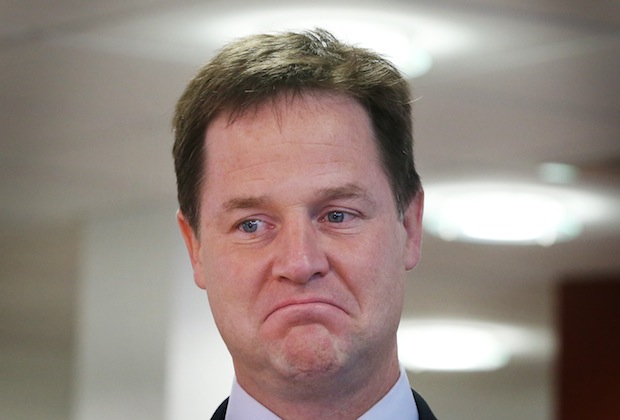Nick Clegg always seems oddly upbeat when he’s doing interviews about just how badly his party could do in the General Election. Today when Andrew Marr asked him about Iain Dale’s prediction the Lib Dems will lose at least half their seats, Clegg said ‘I really don’t think thats going to happen’ and that ‘we will do so much better than the pundits are predicting’. The Lib Dems currently have 56 seats (the 57th, Mike Hancock, had the whip withdrawn last year), and this election forecast suggests they’ll end up with 27. The sense in the party is that this will be just about OK, but go much lower than 25 and Clegg’s in real trouble.
One of the reasons that Clegg seems so upbeat is that his party’s strategy for this General Election means it doesn’t need to pay that much attention to its dismal national poll rating. The only thing that matters, strategists will quite openly tell you, is how the party is polling in its individual seats. And in those seats it is doing much better than the 7 per cent it polled this weekend.
The problem, though, is that the Lib Dems can only weather one election in the foetal position that they’ve adopted for this one, and with the ‘we’ll moderate any party in government’ pitch along with policy announcement on a range of niche issues. If Clegg’s party does do better than Iain Dale’s prediction, it will only have protected seats rather than made gains, and no-one, not even Clegg in his most upbeat of moments, thinks it’s going to retain all of its current seats. After the election, whether the Lib Dems are in or out of government, the cry for a big pitch from a party with a strong discrete identity will become stronger and more urgent if the Lib Dems are to have any hope of avoiding utter misery in 2020. But for all Clegg’s positivity, he’s unlikely to be the leader who answers that call – indeed, the prospect of not leading the Lib Dems all the way up to that 2020 election may be the very reason why Clegg seems so eerily cheerful.







Comments